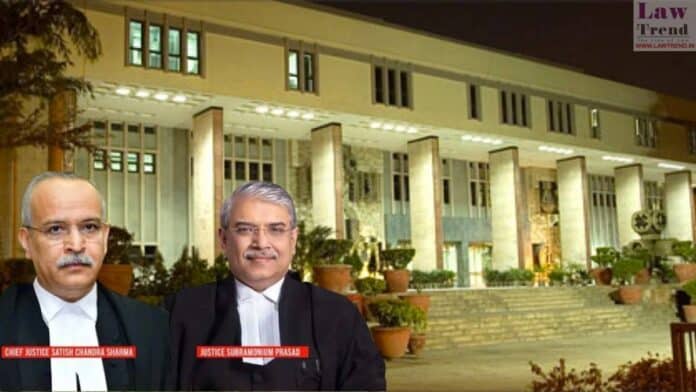The Delhi High Court has directed its registrar to transfer the amount deposited by media houses which were pulled up for disclosing the identity of the eight-year-old gangraped and killed in Kathua to a fund for sexual assault victims.
Two media houses recently deposited Rs 10 lakh each with the court and others had done so earlier. In a recent order, the court said the money should be given to the Victim Compensation Fund of the Jammu and Kashmir State Legal Services Authority.
“The Registrar General of this court is directed to transmit the amounts so deposited by respondents no.8, 28 (two media houses) and by other respondents (media houses) in the present case, if any such amount is still lying with the court, to the Victim Compensation Fund maintained by the Jammu and Kashmir State Legal Services Authority for disbursement of funds to the victims/families of the deceased victims of sexual violence,” a bench of Chief Justice Satish Chandra Sharma and Justice Subramonium Prasad said.
In April 2018, the high court took up the matter on its own after coming across the media reports and issued notices to several of them for disclosing the identity of the minor girl. It also prohibited them from further revealing her identity.
The media houses then apologised. Their counsel submitted that they would be willing to deposit amounts to be used towards compensation to victims and families of victims of sexual violence to establish their sincerity and bonafide of intent.
In its order earlier this week on February 13, the high court noted that the counsel for parties said all the media houses to whom notices were issued had complied with the April 2018 directive and no further orders were required to be passed in the matter.
“Taking note of the nature and manner of reporting of an alleged incident of a gang rape and murder by various newspapers wherein the privacy of victim which is required to be maintained in respect of the identity of a victim has been violated, this court initiated suo motu proceedings against various newspapers on April 13, 2018.
“The manner in which the incident was reported is contrary to Section 23 of the Protection of Children from Sexual Offences Act, 2012 (POCSO) as well as Section 228A of the Indian Penal Code, 1860. The manner of reporting the incident is also against the public justice,” the bench said and disposed of the matter.
The high court had earlier said it was “unfortunate” and “extremely distressing” that the victim’s photograph was also displayed in the print and electronic media.
It said there were provisions in the penal law and under POCSO Act which prohibit any kind of reporting that affects reputation and impinges on the privacy of victims, including children, of sexual offences.
The eight-year-old had disappeared from near her home in a village near Kathua in Jammu and Kashmir on January 10, 2018. Her body was found in the same area a week later.
The Jammu and Kashmir police’s Crime Branch, which probed the case, filed a main chargesheet against seven persons and a separate one against against a juvenile in a court in Kathua district. The chargesheet revealed chilling details about how the girl was allegedly kidnapped, drugged, raped inside a place of worship before being killed.
On June 10, 2019, a special court sentenced three men to life imprisonment. Three others were convicted of destruction of evidence and handed five years in jail and one was acquitted.
On November 2022, the Supreme Court held that Shubam Sangra, a key accused in the case, was not a minor at the time of the offence and ordered his trial as an adult.
Section 23 of the POCSO Act specifically prohibits any reporting or comments which may have the effect of lowering his/her reputation or infringing upon his/ her privacy. A publisher or media house, if found to be in contravention of the section, is liable to be punished with imprisonment for a period ranging from six months to one year, or fine, or both.
Section 228A of the IPC also imposes a similar embargo on publication of identity of a victim of a sexual offence, making any contravention punishable with a maximum of two years imprisonment along with imposition of fine.




